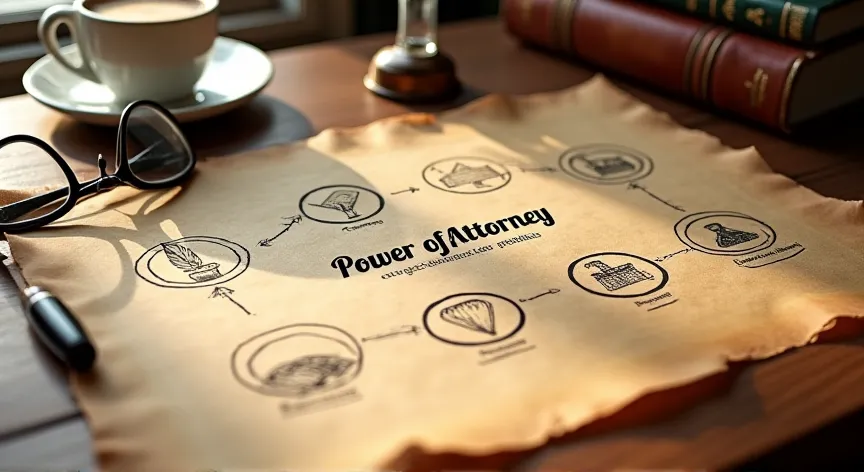|
Legal & Tax Disclosure
ATTORNEY ADVERTISING.
This article is provided for general informational purposes only and does not constitute legal, financial, or tax advice.
Reading this content does not create an attorney-client or professional advisory relationship.
Laws vary by jurisdiction and are subject to change. You should consult a qualified professional regarding your specific circumstances.
|
POA: Types, Rights & Revocation
Discover how a Power of Attorney works, the key types, your legal rights, and how to create, update, or revoke one to protect your health, finances, and future decisions.
Understanding Power of Attorney | Types, Rights & Revocation
Power of Attorney: Frequently Asked QuestionsPower of Attorney: Frequently Asked Questions
1. What is a Power of Attorney (POA)?
A Power of Attorney is a legal document that allows one person (the agent or attorney-in-fact) to make decisions or take actions on behalf of another person (the principal). It can cover financial, legal, or healthcare matters depending on the type you create.
2. What are the different types of Power of Attorney?
The main types include General, Durable, Limited (Special), and Medical (Healthcare) Power of Attorney. Each grants different levels of authority and may take effect immediately or only under certain conditions, such as incapacity.
3. How long does a Power of Attorney last?
A Power of Attorney remains valid until it is revoked, expires by its own terms, or the principal passes away. A Durable Power of Attorney stays in effect even if the principal becomes incapacitated.
4. Can a Power of Attorney be revoked or changed?
Yes. As long as the principal is mentally competent, they can revoke or change their Power of Attorney at any time. It’s best to do this in writing and notify any institutions or parties who relied on the original document.
5. Why do I need a Power of Attorney?
A Power of Attorney ensures someone you trust can manage your affairs if you’re unable to. Without one, loved ones may need to go through court proceedings to obtain authority, which can be stressful and time-consuming.

Free Initial Consultation with
Steven F. Bliss Esq.

★ ★ ★ ★ ★

Did you find this article helpful? Show your support by giving us a 5-star rating—it only takes a second and helps others find the information they need.
|
Attorney Advertising, Legal Disclosure & Authorship
ATTORNEY ADVERTISING.
This content is provided for general informational and educational purposes only and does not constitute legal, financial, or tax advice.
Under the California Rules of Professional Conduct and State Bar advertising regulations, this material may be considered attorney advertising.
Reading this content does not create an attorney-client relationship or any professional advisory relationship.
Laws vary by jurisdiction and are subject to change, including recent 2026 developments under California’s AB 2016 and evolving federal estate and reporting requirements.
You should consult a qualified attorney or advisor regarding your specific circumstances before taking action.
Responsible Attorney:
Steven F. Bliss, California Attorney (Bar No. 147856).
Local Office:
The Law Firm of Steven F. Bliss Esq.43920 Margarita Rd Ste F Temecula, CA 92592 (951) 223-7000
The Law Firm of Steven F. Bliss Esq. is a practice location and trade name used by Steven F. Bliss, Esq., a California-licensed attorney.
About the Author & Legal Review Process
This article was researched and drafted by the Legal Editorial Team of the Law Firm of Steven F. Bliss, Esq.,
a collective of attorneys, legal writers, and paralegals dedicated to translating complex legal concepts into clear, accurate guidance.
Legal Review:
This content was reviewed and approved by Steven F. Bliss, a California-licensed attorney (Bar No. 147856).
Mr. Bliss concentrates his practice in estate planning and estate administration, advising clients on proactive planning strategies and representing fiduciaries in probate and trust administration proceedings when formal court involvement becomes necessary.
With more than 35 years of experience in California estate planning and estate administration,
Mr. Bliss focuses on structuring enforceable estate plans, guiding fiduciaries through court-supervised proceedings,
resolving creditor and notice issues, and coordinating asset management to support compliant, timely distributions and reduce fiduciary risk.
|
